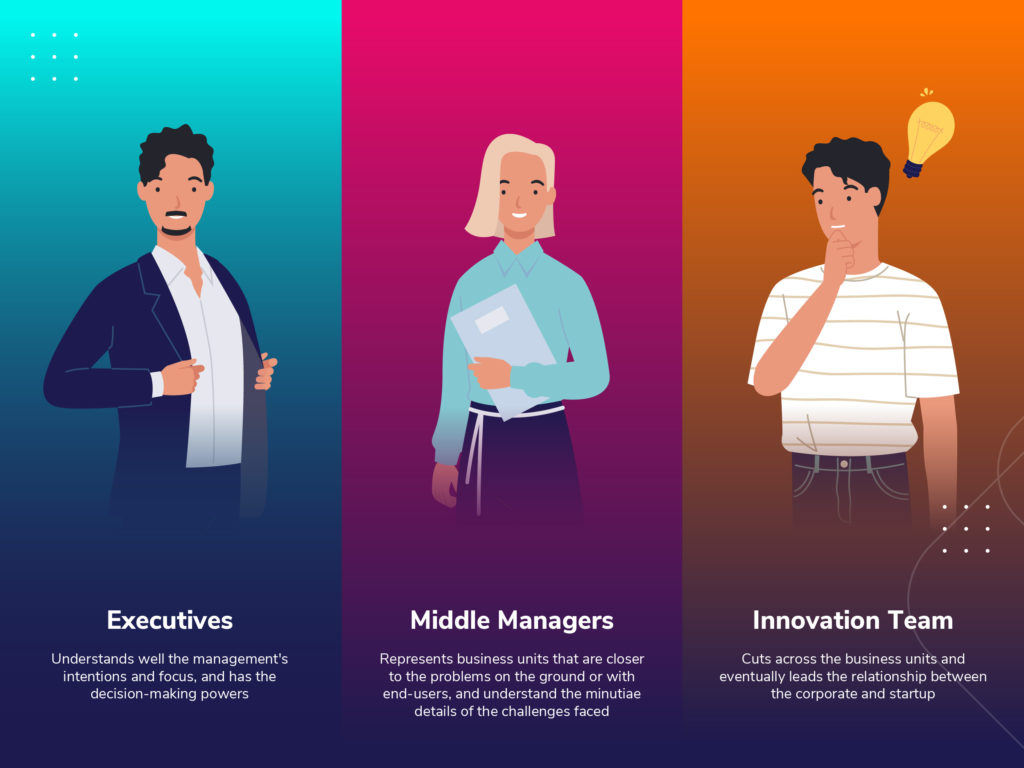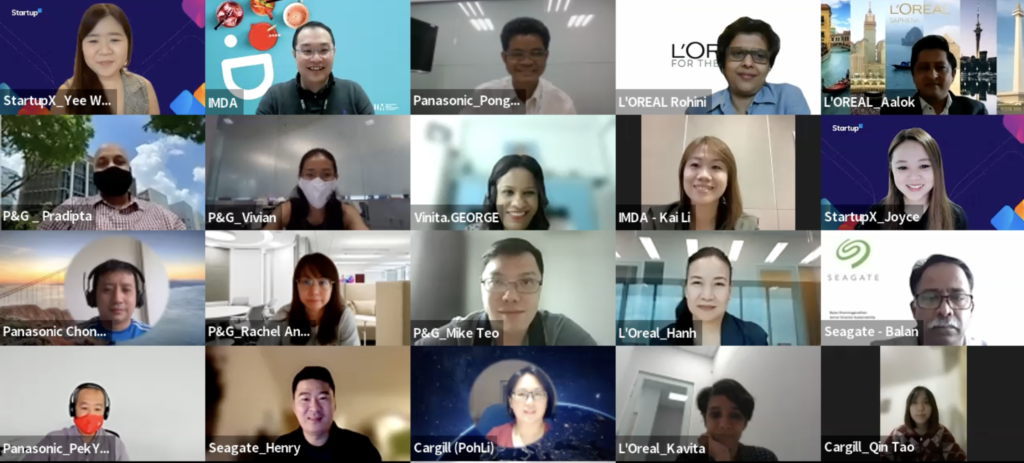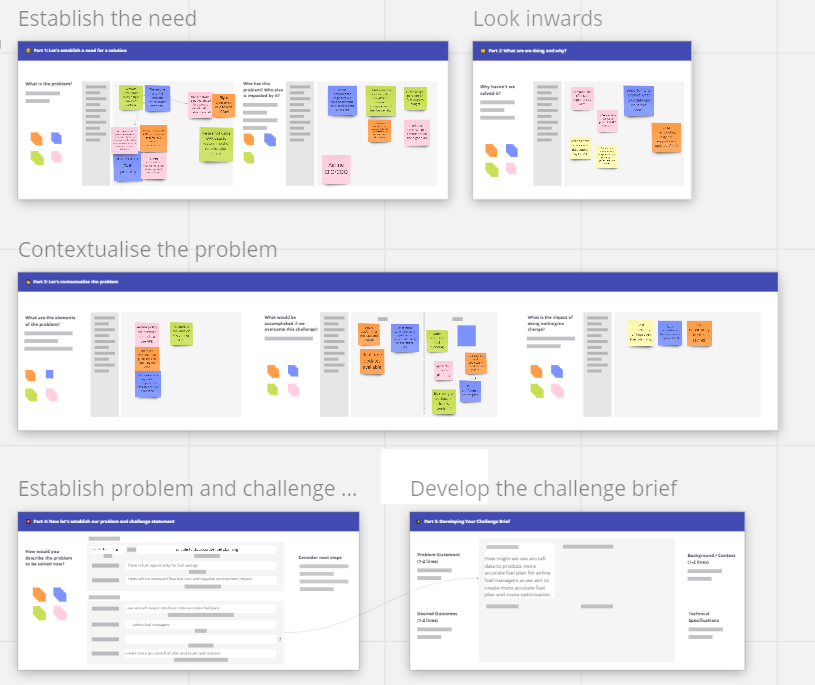In Asia, corporate-startup partnerships are growing at speed. Over the past 5 years, we have seen a 2.8x increase in such partnerships in Asia, with East Asian countries leading the pack. That is because the opportunity for corporations to work with startups is large. According to CB Insights’ Global Unicorns’ List, 281 out of 1000 unicorns today are based here in Asia.
Yet, a surprising 45% of corporates are dissatisfied with their startup partnership, with the key reason being a mismatch of expectations by both parties. While corporations are looking to launch new pilots and generate new revenue streams from their partnership, that is not a top priority for startups. Instead, startups look to tap into the sales opportunities and market access of their corporate partners. Furthermore, the agile, fast-moving culture of startups is often at odds with the slower, bureaucratic nature of their larger counterparts. It is no wonder corporates and startups struggle to find win-win partnerships.
Our Innovation Mission
However, this does not have to be the case.
At StartupX, our mission is to help global corporations and governments innovate like the top startups in the world.
We are firm believers in the value of corporate-startup partnerships, bringing together the best of both worlds. Leveraging our expertise in working with startups in Asia across all stages and industries, we seek to be an enabler to bridge the gap between startups and corporates and facilitate meaningful collaborations.
To better support our partners in their innovation journey, we designed our proprietary corporate innovation programme to help corporates develop a better understanding of startups and set themselves up for long-term partnerships. We recognise that while there is a growing appetite from corporates for innovation, time and resources available are often limited. As such, the programme condenses our content into a short but power-packed two-hour session – a model which has been very well-received by our corporate partners.
At the end of the programme, we aim to help our corporate partners formulate their challenge statements, which articulates their focus areas for potential collaboration with startups. But before we can reach that stage, prior preparation work must be done by the participating corporates.
Laying the Groundwork
Selection of the right profile of representatives to lead corporate-startup partnerships is important. For the programme, we advise choosing two to five mid and executive-level representatives, ensuring a good distribution of decision-makers, business unit representatives and innovation managers. These stakeholders include:

Once the team is selected, further alignment of expectations and mindset is important. Corporates must have an immediate interest to work with startups and be open-minded to explore new possibilities with the startups, rather than fixating on a preconceived idea of the final solution. With startups exploring new and relatively untested technologies, products and business models, there are definitely many opportunities to explore.
Furthermore, while the prospect of startup partnerships is exciting, corporates must also be realistic and recognise that partnerships are not borne out of a single conversation. A successful partnership involves commitment from both the startups and corporates and multiple conversations to align expectations and find synergies for partnership. Even then, success is not assured. Corporates need to be cognizant of other factors impacting success – including the industry niche, internal resources, funding and commitment to see-through – and secure buy-in from senior management to maximise their chances of success.
Most importantly, the team needs to sync internally on key priorities for the corporate’s perspective before attending the workshop. This will set the groundwork for determining what are important focus areas to challenges that the corporate wants to work with startups on.
With the groundwork set, we are ready for the corporate innovation programme and kickstarting the journey towards fruitful corporate-startup partnerships.
The Programme Rundown

Starting with an overview of the corporate innovation landscape in Asia, we set the stage for what to expect from corporate-startup partnerships, and with our best practices working with startups over the years. This is followed by 1-1 team discussion sessions to apply our problem framing canvas, which is a framework to guide representatives to formulate problem statements for their organisations. Led by StartupX facilitators and a team leader representative, representatives will use online whiteboards and virtual post-it notes to collaborate and share their ideas.

Using a structured problem framing canvas, we guide corporate representatives to contextualise problems identified within the organisation by answering the following questions:
- What is the problem?
- Who has the problem, and who else is impacted?
- When and where does it occur?
- Why should we solve it?
This helps the team understand these problems better by elaborating on the stakeholders involved and most importantly, the imperative to devote time and resources to solve this pain point. Once that need is established, the next step is to summarise all the ideas into a clear problem statement.
Often, it is precisely the problem statement that causes friction between corporate and startups. Vague problem statements fail to provide sufficient context for startups to thoroughly understand the pain points faced by the organisation. On the other hand, overly specific problem statements also limit the potential opportunities for partnerships by blaming the problem on a direct cause and dictating the solution.
Keeping this in mind, we crafted a simple but concise template for corporates to frame their problem statements clearly. In two sentences, the problem statement shares the problem faced by various stakeholders, the impact on the corporate as well as the negative outcomes if the problem persists. This problem statement will then be translated into a challenge statement. Framed as a question, it opens an invitation to partner with corporates to explore opportunities to solve the pain point identified. That sets the tone for corporate-startup partnerships, where startups are not seen as vendors, but instead as long-term partners.
Setting yourselves up to win
Ultimately, problem-framing is only the first step in the long journey of corporate-startup partnerships. Beyond that, it requires an alignment of expectations and priorities between corporates and startups, and a joint commitment to devote manpower, time and resources to see the project through. With that, here is some advice we have gleaned from years of working with startups and corporates:
- Startups are not vendors – Startups are faster, more agile, less bureaucratic. Alignment of culture, expectations and goals is critical.
- Know where you are heading – Clarity on metrics to be achieved. Communicate transparently.
- Do not use a microscope – Most partnerships require multiple pilots to win. Be in it for the bigger picture, for the long haul, for the greater good.
- Move fast – Adopt a new mentality of agility. Set up clear internal innovation processes and frameworks to avoid bureaucracy and red tape.
- Lose the battle, win the war – Some sacrifices may be incurred along the way – time, failed pilots etc, but the goal is to keep the spirit of innovation alive and work towards a successful partnership.
As the trusted innovation partner of global corporations in Asia, we have a decade of experience supporting corporate-startup partnerships across a diverse range of industries, including fintech, healthcare and sustainability. We understand that innovation is a long journey, and no two corporate innovation journeys are ever the same. While our corporate innovation programme provides an impetus for our partners to kickstart their journey, a lot more work needs to be done along the way. Reach out to our team at any time and we’ll be happy to support you.









